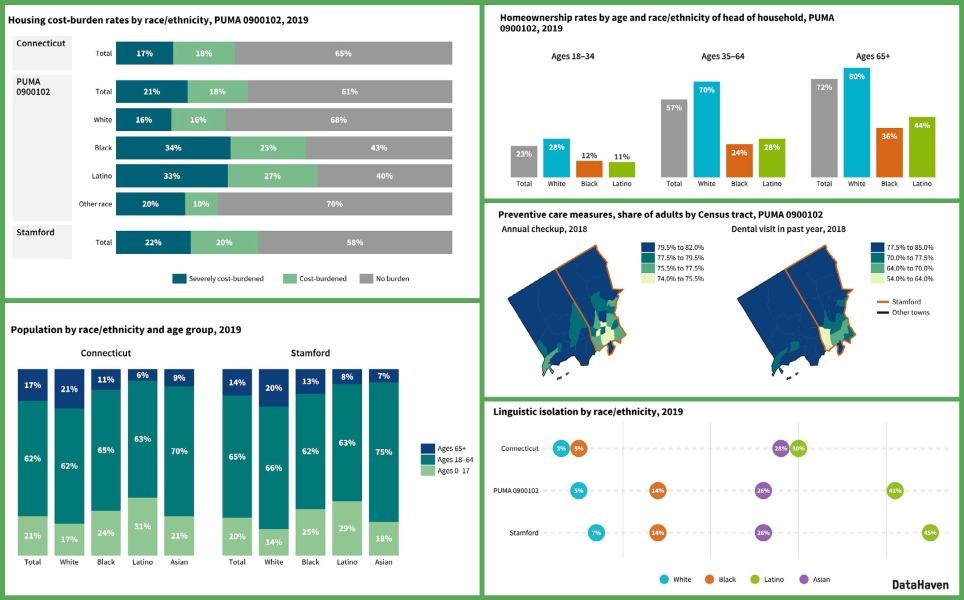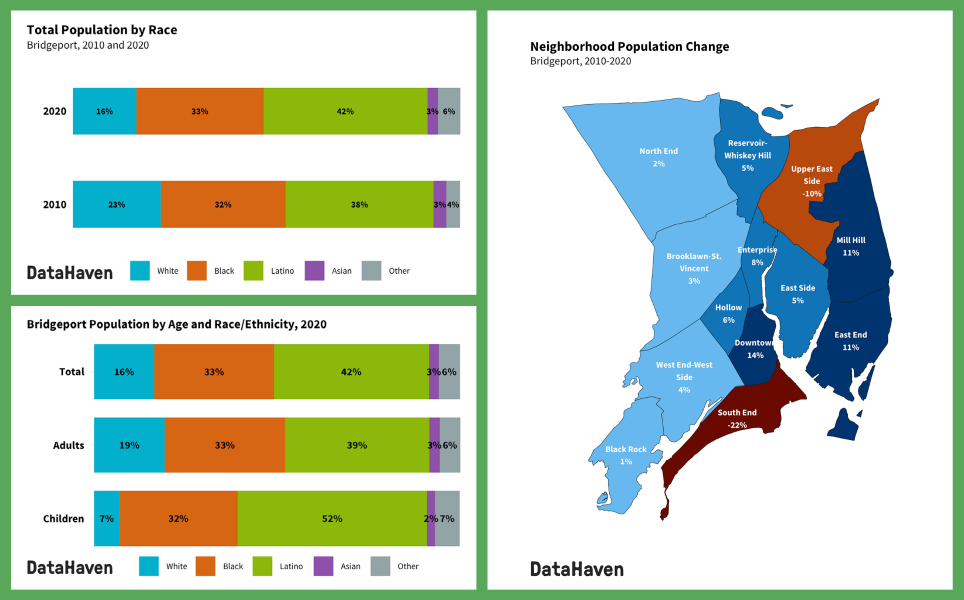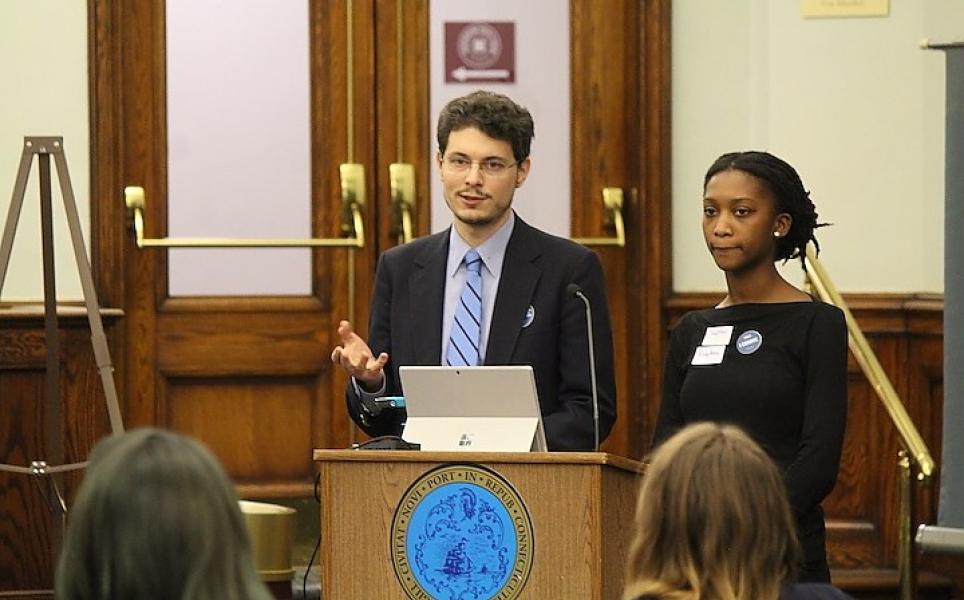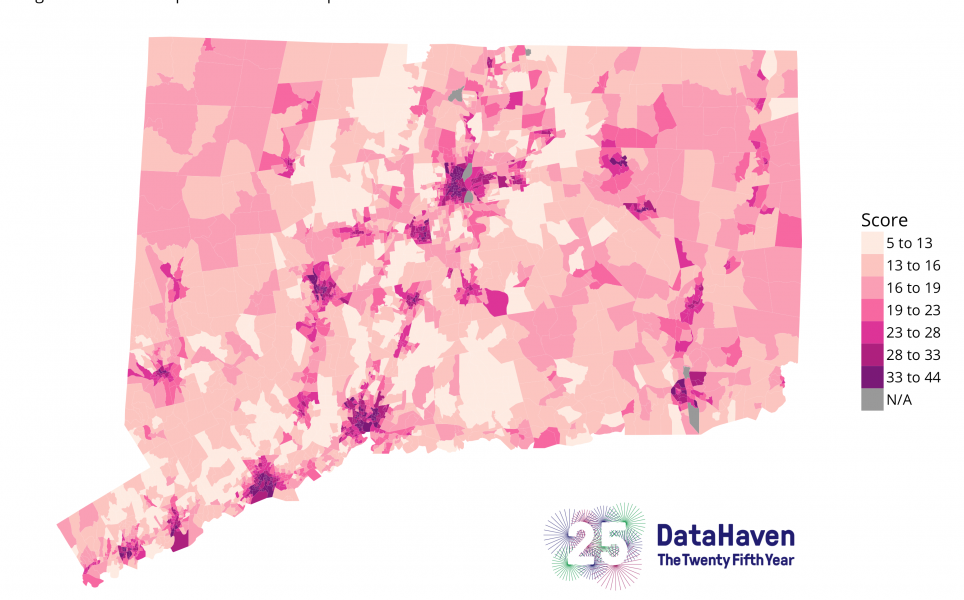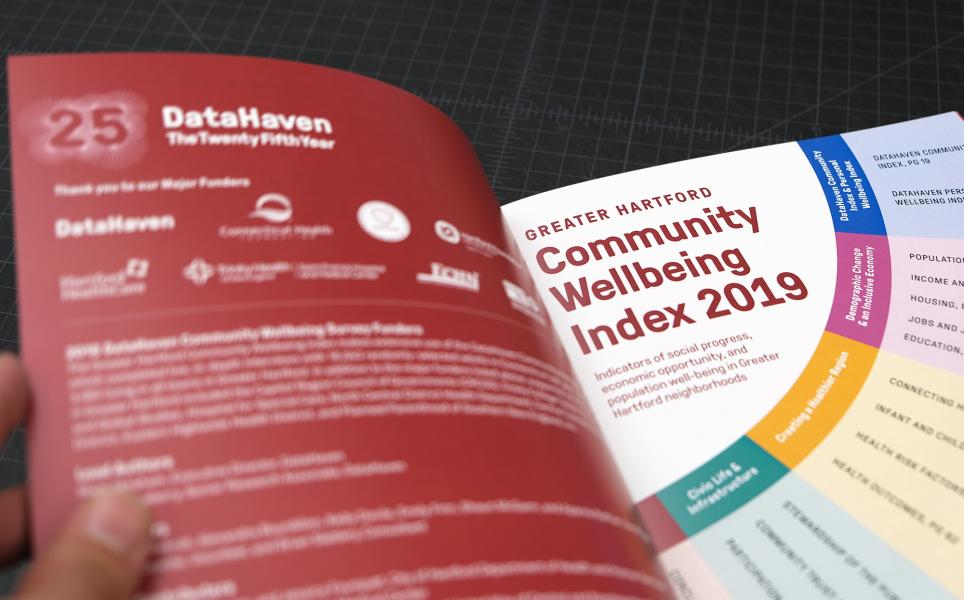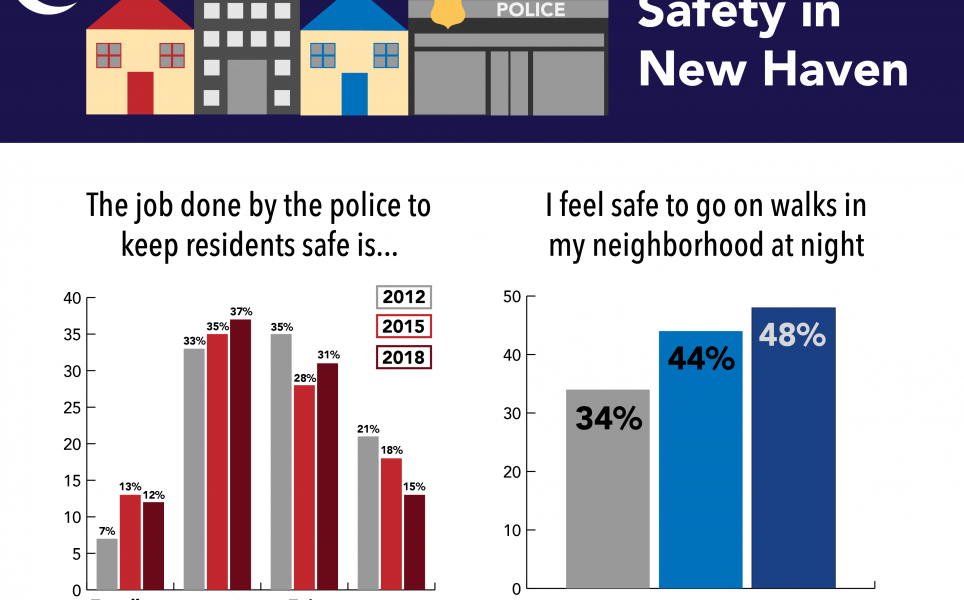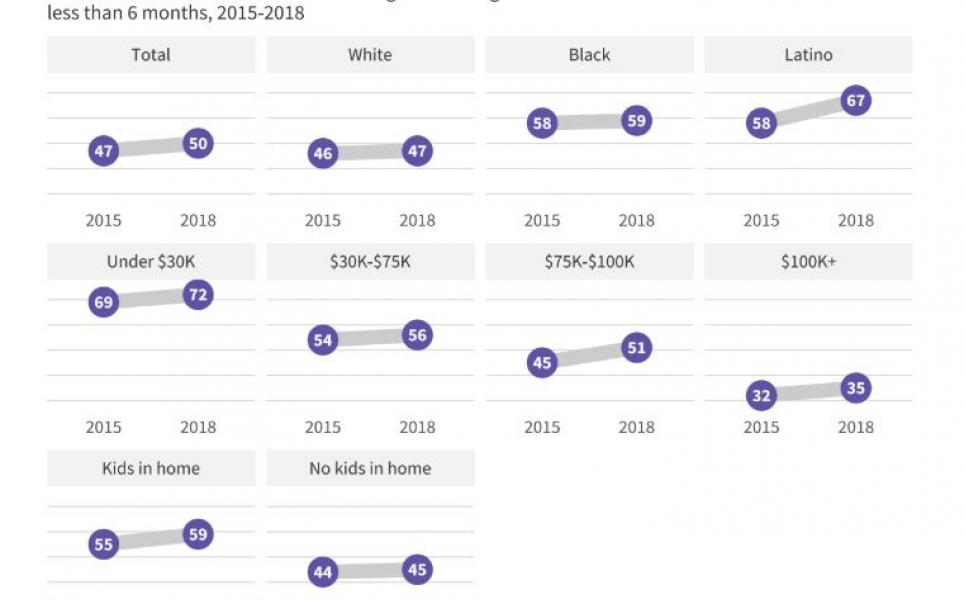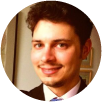[Excerpt of feature by Brooke Alviar, Yale Daily News, 11/8/2019. Photo credit: Brooke Alviar]
DataHaven Executive Director Mark Abraham believes in the power of numbers, and in a talk on Wednesday afternoon, he informed the broader Yale New Haven public on how data collection can improve New Haven policymaking.
Yale’s Institution for Social and Policy Studies and Yale’s Center for the Study of Race, Indigeneity and Transnational Migration, or RITM, hosted Abraham for an event about data collection. Abraham provided insights on how data is collected and used, which he said is valuable for community members to understand, especially as the 2020 census approaches. The event took place in the Institution for Social and Policy Studies, where DataHaven was founded in 1992. DataHaven — which performs surveys independent from the census — makes its resources accessible to over 200 agencies per year.
“The DataHaven talk was important because with Census 2020 right around the corner, we wanted people to understand why completing the census is important to the community,” said Jennifer Snow, who is a librarian for the Departments of Anthropology, Sociology and Women’s, Gender and Sexuality Studies.
Abraham began the event by speaking about the “Community Index,” a book published by DataHaven that serves as a comprehensive report of Connecticut’s demographics. He said that they designed the book to be an easily accessible reference for hospitals and nonprofits across the state.
The results of the “Community Index 2019” indicate that Connecticut enjoys high life expectancy, housing security and employment rates. According to the index, Hartford ranks seventh in the country for the quality of life residents enjoy. Still, these results lose their sparkle when broken down, according to Abraham. Especially in New Haven, there are discrepancies between black and Latino populations and white and Asian populations across all measures of well-being.
“Latino women with graduate degrees have earnings less than men with high school degrees,” Abraham said. He said that realities like these are precisely why he works so hard to make DataHaven a thorough surveyor that can point out policy flaws. He hopes public awareness of such problems will inspire improvement in education and employment.
While a traditional census provides data about material needs and home ownership, Abraham said such surveys cannot get a broader sense of the social issues. DataHaven aims to bridge that gap in understanding through projects like the “Community Index,” which asks more questions than the census. He said that capturing the quality of life of residents is important to DataHaven, and he added that many government decisions affect resident happiness and quality of life.
By conducting more exhaustive surveys than the U.S. Census, DataHaven sheds light on the lives of community members in the Nutmeg State. The group interviews about 32,000 randomly selected adult residents in every Connecticut zip code, including a total of more than 8,000 people in the state’s five largest cities.
During the talk, attendees asked Abraham questions about DataHaven’s survey methods.
“It’s so hard to get a representative sample anymore in any survey, and you’ve done a phenomenal job at it. How do you approach it?” one attendee asked.
Abraham responded that they take advantage of phone surveys and door-to-door sampling, adding that internet surveys can be biased. He recalls how dialing random phone numbers “for days” is not the most pleasant venture, but it is one that pays off in the end.
DataHaven has found that it is most difficult to reach people of color, families with children, single-parent households, students, homeless individuals, itinerant workers, immigrants and people with low incomes. He said that the 2020 census will likely also struggle to reach such demographic groups. Abraham said the reasons for these challenges include time restrictions, distrust in data and difficulty finding people’s addresses.
Data privacy and distrust in government are becoming larger concerns nationwide, according to Abraham. Encouraging participation can therefore be difficult, but Abraham believes in the power of communication. Many people do not understand the census or its rules to protect people’s privacy and confidentiality, Abraham said. He added that local and personal outreach from trusted voices within communities could help overcome skepticism and misinformation surrounding surveys.
Founded in 1992, this year marks DataHaven’s 25th year of public service. Though Abraham’s audience consisted primarily of RITM librarians, some Yalies were also in attendance, as well as community-oriented New Haven residents.
In an interview, Snow said Abraham did a fantastic job explaining how a correct count is necessary to securing funding for public services. Tabulating a correct count of various groups and communities is vital to serving people with different needs and concerns, Snow added.
“[The talk] was very informative, and it definitely gave me a better idea of what New Haven is like,” Jenny Xiong ’21 said.
She added that she sees DataHaven’s information as invaluable to breaking out of the “Yale bubble” and engaging with the broader community.
In September, DataHaven, along with other CT-based agencies, received a one-year, $141,926 grant to leverage local life expectancy data to explore how communities can ensure that everyone has a fair and just opportunity for a long life.
Link:
https://yaledailynews.com/blog/2019/11/08/datahaven-director-sheds-light-on-surveying-practices/




